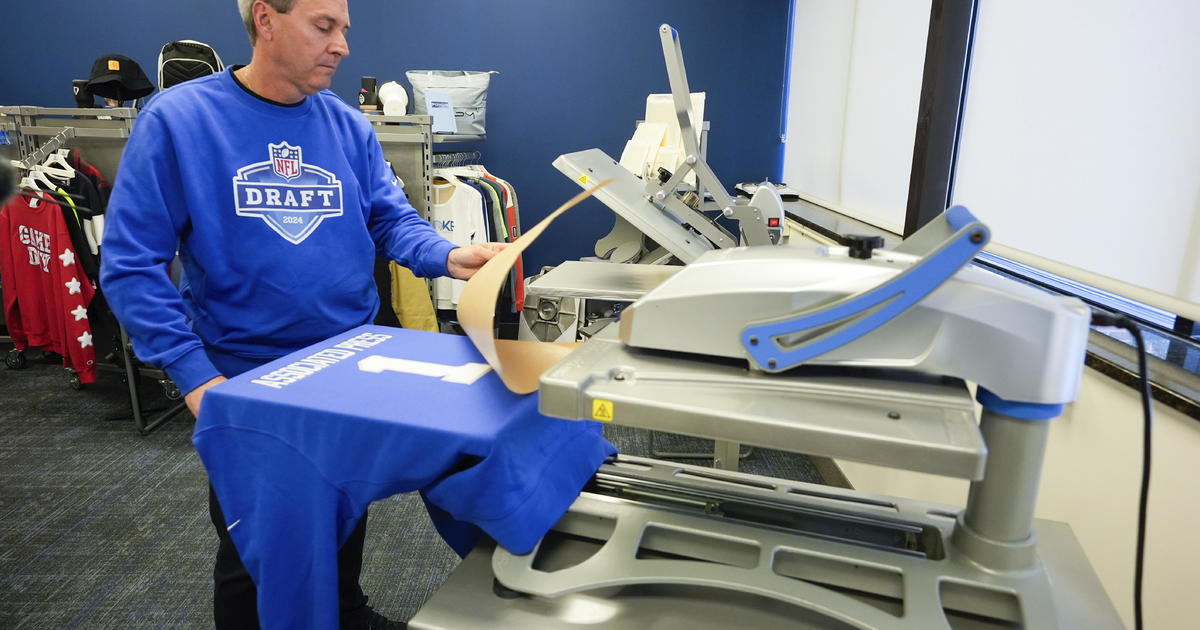Battery Technology Firm Wins UM-DTE Clean Energy Prize
A company whose technology could lead to cheaper lithium-ion batteries won the top prize of $50,000 in the 2011 Clean Energy Prize business plan competition. Gov. Rick Snyder spoke at the awards ceremony Friday at the University of Michigan's Rackham Auditorium.
Two other companies founded by UM students won second and third prizes of $25,000 and $10,000 respectively, while a team from Western Michigan University captured fourth place and a $7,000 prize.
Gov. Rick Snyder spoke about his experiences as an entrepreneur and venture capitalist to an audience that included hundreds of students, opening with a quip that "it's kind of fun to give a talk that doesn't have the words 'budget' or 'tax' in it."
More seriously, Snyder said, "It's great to see the intersection of three things that I love. We're talking about innovation and entrepreneurship ... We're talking about clean energy, something that is vitally important for our future. It's about economic growth, and doing it in the most responsible way possible in terms of the legacy we leave and the opportunity it provides us and the third thing is it involves students. You are our future ... To have those three things come together is really special."
He recalled his early work as an accountant with the Inventors Council of Michigan, whose innovations included a new snow shovel handle. After his years as an executive with Gateway Computer, when he came back to Ann Arbor in the 1990s with a venture capital fund, "Do you know what the reaction was? There was not one. Nobody knew what that was." When he asked local officials for help in setting up an office, the Chamber of Commerce offered him a welcome pack for $7. He said he could tell VC proposals from Midwest companies from West Coast companies back then because the Midwest proposals talked only about technology, while West Coasters emphasized marketing and the executive team. And back then, Snyder said, the University of Michigan wasn't terribly serious about turning scientific discoveries into spinoff companies. He recalled literally prowling the halls of UM faculty office building with Ken Nisbet, UM's tech transfer director then and now.
"We got better," Snyder said. "U of M is now one of the national leaders in tech transfer. They're great to do business with. And today we have Ann Arbor Spark," the region's economic development agency.
"Hold your head high if you're an entrepreneur or an innovator in our state today -- we're as good as any in the world," Snyder said.
Snyder also emphasized that entrepreneurs today must work in teams. "One of the great misnomers about entrepreneurship and innovation is that people think it's about the lone inventor," Snyder said. "Quite often a founder may get a lot of credit, but if you really do your homework, you will find a team there."
Snyder didn't take questions after the event about his tax and budget proposals, which involve cutting education funding, ending tax breaks for pensions, the working poor and some favored industries, while lowering overall business taxes.
The Clean Energy Prize, established by DTE Energy and UM in 2008, is designed to encourage entrepreneurship in Michigan and the development of clean-energy technologies. This year's contest was organized by the UM College of Engineering's Center for Entrepreneurship and DTE.
The winning company, CSquared Innovations, is a UM start-up project that has developed a faster, cheaper, laser-based method of making nano-structured materials and coatings for lithium-ion battery electrodes, solar cells, and industrial coatings. The company is based on technology developed in the lab of Pravansu Mohanty, a professor in the Department of Mechanical Engineering at UM Dearborn.
"The exposure and experience we've gained from the Clean Energy Prize are extremely valuable to us at this point in our business," said team leader Nick Moroz, a doctoral student in the UM Ann Arbor Department of Materials Science and Engineering. "I'm very excited to take the next step and to establish our firm as a strong cleantech presence in the lithium-ion battery market and to begin creating jobs in Michigan."
In addition to Mohanty and Moroz, other team members are Ramesh Guduru, chief scientist and Harishankar Umapathy, operations manager.
UM President Mary Sue Coleman commended all the participants for their ideas and their energy.
"We can all be proud of the teams that competed in this statewide event, because it is a powerful statement about our collective future," Coleman said.
Gerard Anderson, DTE Energy president and CEO, said this year's competition exceeded expectations in several ways.
"With a starting field of 23 teams representing seven Michigan colleges, the competition has achieved a scale that we had hoped for but did not anticipate reaching in just three years. Also, the quality of the proposals and the talent of the students continue to surprise and impress us," Anderson said.
Previous Clean Energy Prize winners continue to build their businesses. Algal Scientific, the 2008 winner, has raised more than $300,000 in cash and in-kind services to support its technology that uses algae to simultaneously treat wastewater and produce the raw materials for biofuels. The company employs nearly a dozen staff and technical advisers and is deploying a demonstration-scale wastewater treatment plant at an industrial plant in Ohio.
Enertia, the 2009-2010, winner, is continuing to develop and refine their tiny generators that produce electricity from random ambient vibrations. The company has demonstrated a second-generation prototype that can turn vibrations from traffic on a suspension bridge into useable electricity.
Three other teams were honored in the 2011 contest. Team Smart Energy, out of UM, won second prize for a new financing model to retrofit municipal buildings for energy efficiency savings. Team Impact Card, also out of UM, won third for its funding mechanism that aggregates consumer credit card reward points as project financing for renewable energy development. Team Perennial BioEnergy, out of WMU, finished fourth for its plan to develop a pennycress-based biodiesel industry.
Mark Pinto, executive vice president of energy and environmental solutions at Santa Clara, Calif.-based Applied Materials, offered remarks on how the microchip company grew into flat panel displays in the 1990s, and into renewable energy technologies in the 2000s.
Pinto observed that if individual transistors cost today what they cost in 1976, an iPod would cost $3.2 billion. He said Applied Materials hopes to bring that same Moore's Law drive toward cheaper and faster technologies to energy conversion (solar panels), energy conservation (LED lighting and 'smart' glass) and energy storage (advanced batteries).
He said flat panel displays have fallen in cost by a factor of 20 times in 15 years, while solar panels have fallen by a factor of 10 since 1980, when President Jimmy Carter proposed having the U.S. 20 percent solar powered by 2000. In fact, solar prices today are approaching parity with the grid for peak power demands, and Southern California Edison says solar power is now cheaper than electricity generated by natural gas.
LED lighting is a promising technology that remains far more expensive than its competitors, but here too mass production may cut prices. A 60-watt incandescent bulb costs $1 and burns 1,000 hours. The same brightness bulb in compact flourescent consumes 14 watts, burns 10,000 hours and costs $3, making it cost competitive. An LED bulb of the same brightness consumes just six watts and burns 60,000 hours -- but costs $20.
Advancing LEDs could also lead to super-thin flat panel TVs, Pinto said.
Finally, Pinto said advances in battery technology are needed to move beyond the likely 200-mile range limit of a lithium-ion battery vehicle.
Contest sponsors include The Masco Corp. Foundation, The Kresge Foundation, UBS Investment Bank, Google, Huron River Ventures and GM Ventures. In addition to the Center for Entrepreneurship, other UM groups involved in organizing the contest are the Ross School of Business's student organization Ross Energy Club, the Business Engagement Center, the Michigan Memorial Phoenix Energy Institute and the Office of the Vice President for Research.



